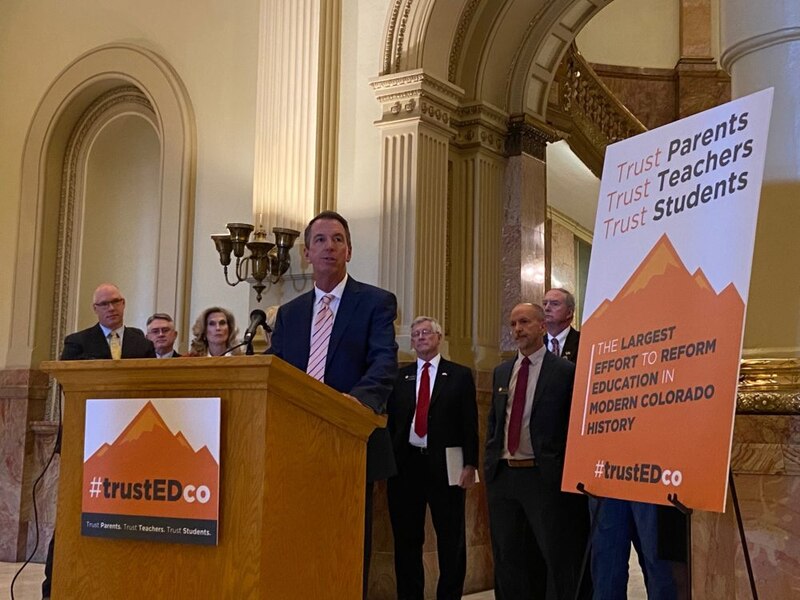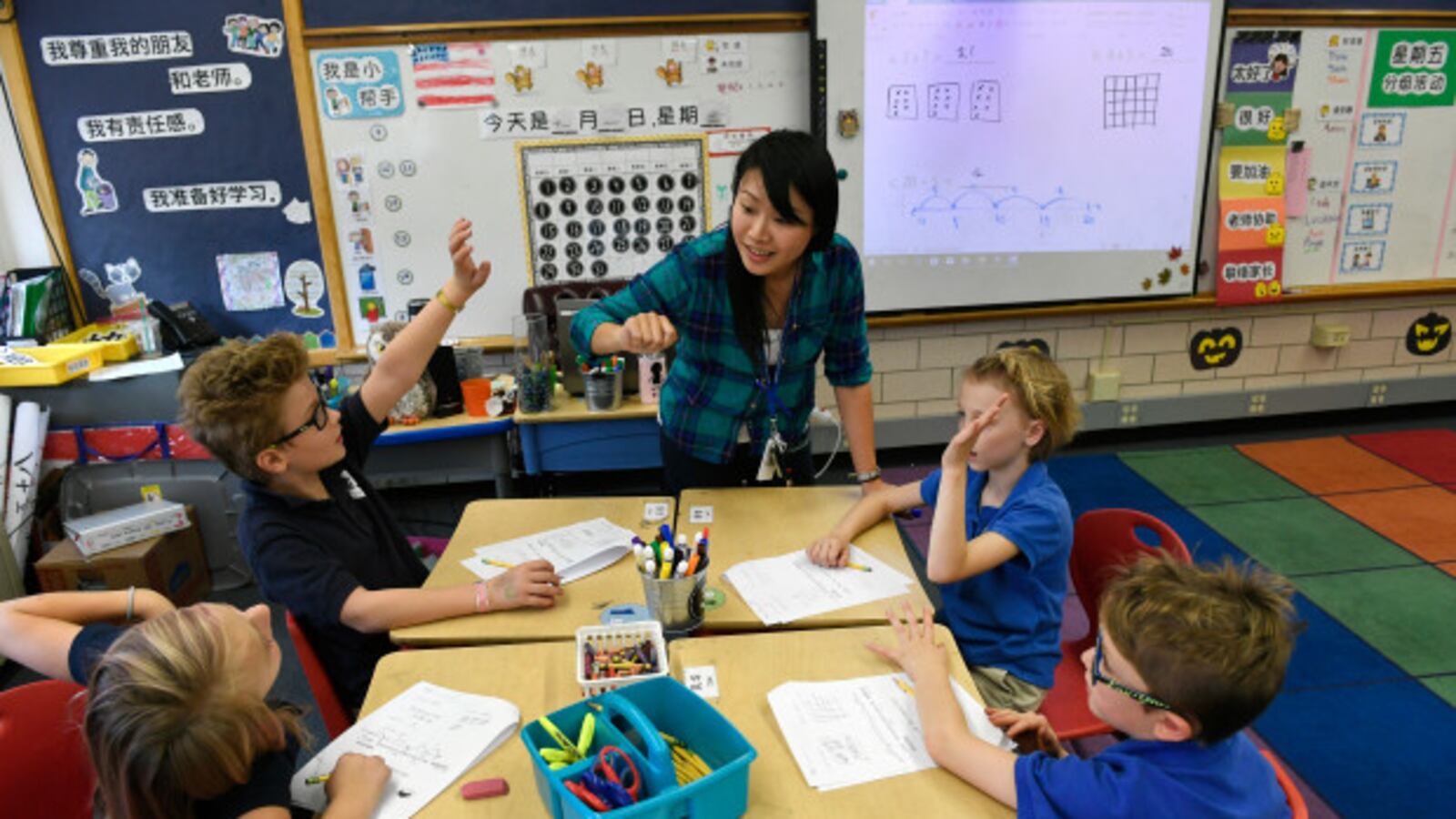Colorado voters of all stripes want more money to go to education and specifically into teachers’ paychecks, but they don’t want to raise taxes to do it. They’re also broadly supportive of charter schools, school choice, and giving more control to parents.
These are the results of a statewide poll conducted by the firm Cygnal for Ready Colorado, a conservative education reform group. Ready Colorado released the poll results publicly on Monday to demonstrate what it sees as broad bipartisan support among the public for education bills sponsored by Republican legislators this session. Some of these bills have already been assigned by Democratic leadership to what are known as “kill” committees, where legislators in safe seats stop bills that aren’t in favor with their party.
The Republican education plan covers a range of issues, from teacher pay to parental rights to school safety. One proposal would give bonuses to teachers rated highly effective, while another would require school districts to notify parents if a teacher is charged for giving drugs or alcohol to students. Some bills expand transportation options for students who enroll somewhere other than their home school, particularly if those students have special needs or have been victims of violence or bullying. One proposal would allow parents to change school district policies directly through a petition process.
“The ideas around dealing with education have become a little stale,” said Luke Ragland, the president of Ready Colorado. “They’ve become a little one-note. All we hear is that we need to add more money to the same system, but we all know that’s not something that’s going to result in educational improvement.”
Nationally, a number of studies have found that spending more does improve educational outcomes, particularly for students from low-income families. But regardless, Colorado voters have repeatedly rejected tax increases for education. Ragland led the campaign against Amendment 73, an unsuccessful proposal to raise $1.6 billion a year through higher taxes on corporations and the wealthy.
Cygnal, which gets an A/B rating from the polling analysis site FiveThirtyEight, surveyed 636 likely voters in mid-December. The poll has a margin of error of 3.9%.
The poll found that 56% of respondents thought schools were underfunded, and while only 26% of Republicans held that position, almost 80% of Democrats did and so did 58% of unaffiliated voters, who make up the largest share of Colorado voters.
Similarly, 67% of respondents said teacher pay was too low, including almost 46% of Republicans.
But only a quarter of respondents supported raising taxes to fund education better, and nearly 70% said the state should better prioritize spending instead. Democrats were the most likely to support raising taxes — at just 44%.
People who took the survey were told that Colorado schools get an average of $13,000 per student, an amount that includes federal funds, but not that K-12 education already takes up about 36% of the state’s $12 billion general fund budget, more than any other spending area.
The Colorado poll found more support for charter schools among Democrats than in national polls, where support for the publicly funded but independently run schools has plummeted among white voters. Black and Hispanic Democratic voters remain more supportive of charters.
The poll found that 53% of Democratic respondents had a favorable view of charter schools, compared with 72% of Republicans and 64% of households with children. Just 29.5% of Democrats had an unfavorable opinion of charter schools.
This is also a more positive finding than Magellan Strategies found in an independent survey of Coloradans’ views on education policy last year.
“In Colorado, charter schools and school choice remain incredibly popular, and people fundamentally understand that more options for more kids is a good solution,” Ragland said.

Poll participants were asked about a number of proposals that would allow public money to be used for personal educational needs. One proposal would allow parents of students who had been bullied to put the money the state would have spent on their child’s education into a “child safety account” for private school, while another would provide a transportation stipend to help such children change schools. Another proposal would create “education savings accounts” that provide up to $1,200 a year for students with special needs to get therapy or tutoring outside of school. Yet another would allow students who graduate early to get scholarships with the money that would have gone to their high schools if they’d enrolled in 12th grade.
While charter schools and school choice have enjoyed broad bipartisan support in the statehouse, Democrats in the legislature have traditionally opposed any education bills that shift public money to private entities, even in modest amounts or in the form of tax credits. These proposals often are seen as opening the door to vouchers and siphoning off scarce public resources.
But in the poll, Democratic voters supported these proposals in large numbers.
Ragland said he hoped Democratic lawmakers would reconsider their opposition.
“These educational issues provide the very best opportunity for Democrats and Republicans to work together with a broad base of public support,” he said.
See the full poll results here.

